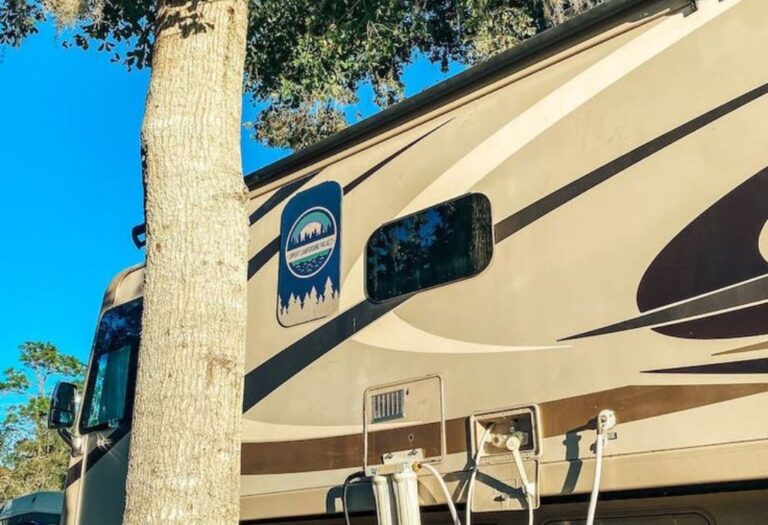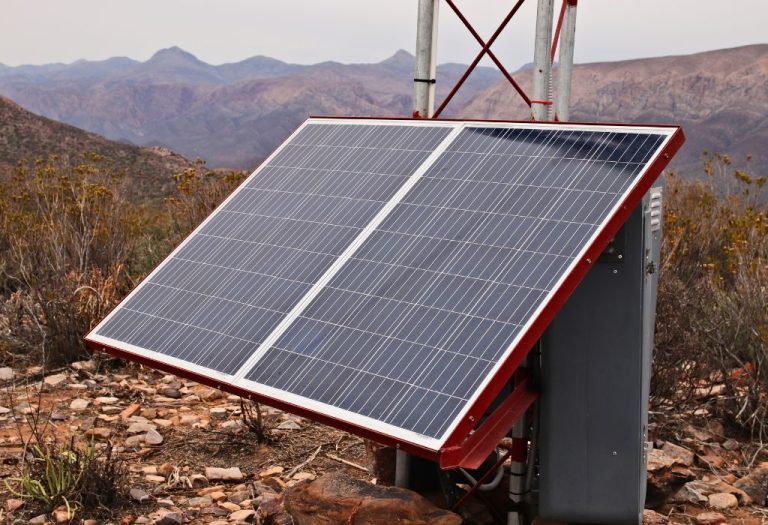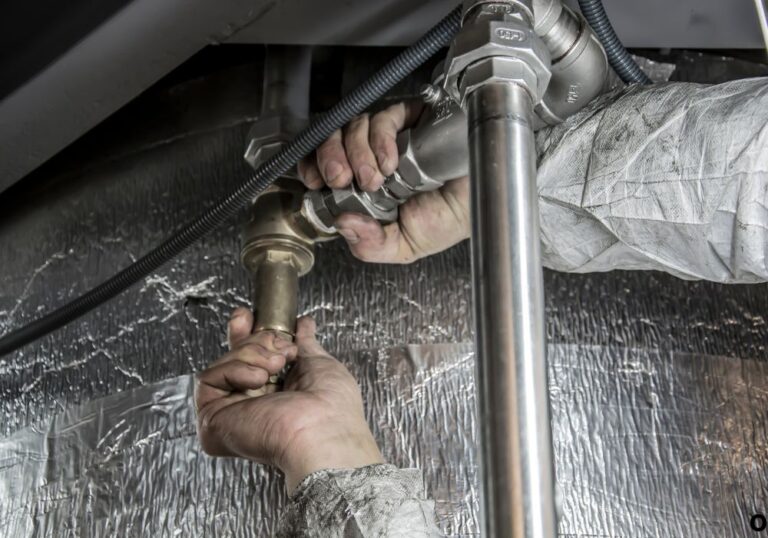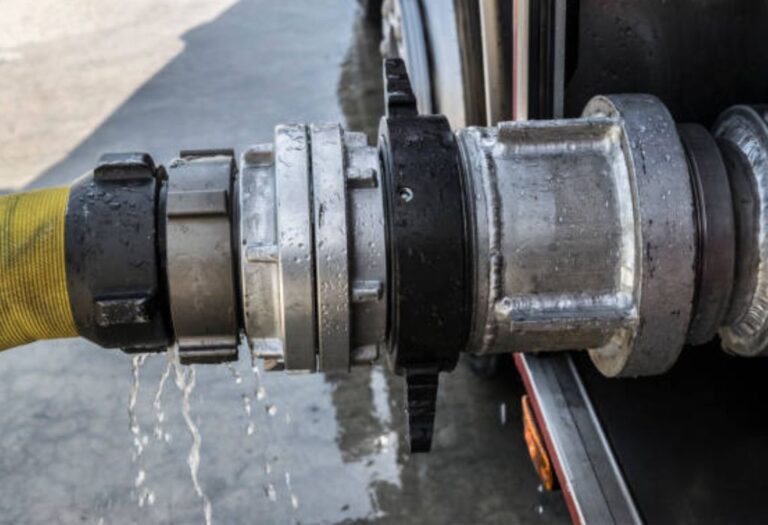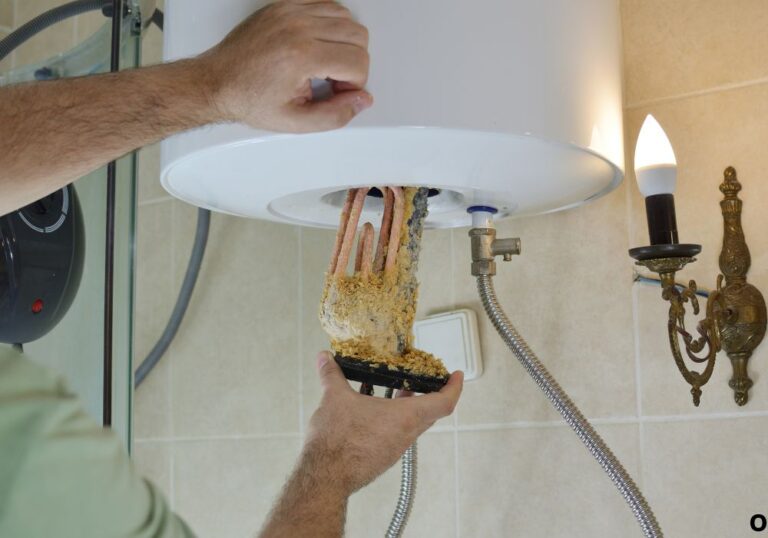How Do RV Water Pumps Work? Simple Guide for Owners
The hum of a water pump is one of the first sounds many RV owners hear when camping off-grid.
You open a faucet, water flows, and the small pump hidden near the tank does its job quietly in the background. But have you ever wondered exactly how it works?
RV water pumps are small but powerful devices designed to pressurize your plumbing system. Without them, sinks, showers, and toilets would be useless unless you were hooked directly to city water.
These pumps turn stored freshwater into a pressurized flow that feels like home comfort even while traveling.
According to the Recreational Vehicle Industry Association (RVIA), more than 11 million U.S. households own an RV [RVIA].
Most of these RVs rely on 12V diaphragm pumps that can produce 40–60 PSI, enough to mimic the water pressure of a house. That little motor is the heart of your RV’s plumbing system.
Yet, many RV owners only think about their pump when something goes wrong.
Low water pressure, sputtering faucets, or a pump that won’t shut off are common frustrations on the road. Understanding how pumps work makes troubleshooting easier and prevents costly breakdowns.
This guide explains how RV water pumps work step by step, why they are essential, common issues to watch for, and how to maintain them.
By the end, you’ll know exactly what’s happening every time you turn on a tap in your RV.
What Is an RV Water Pump?
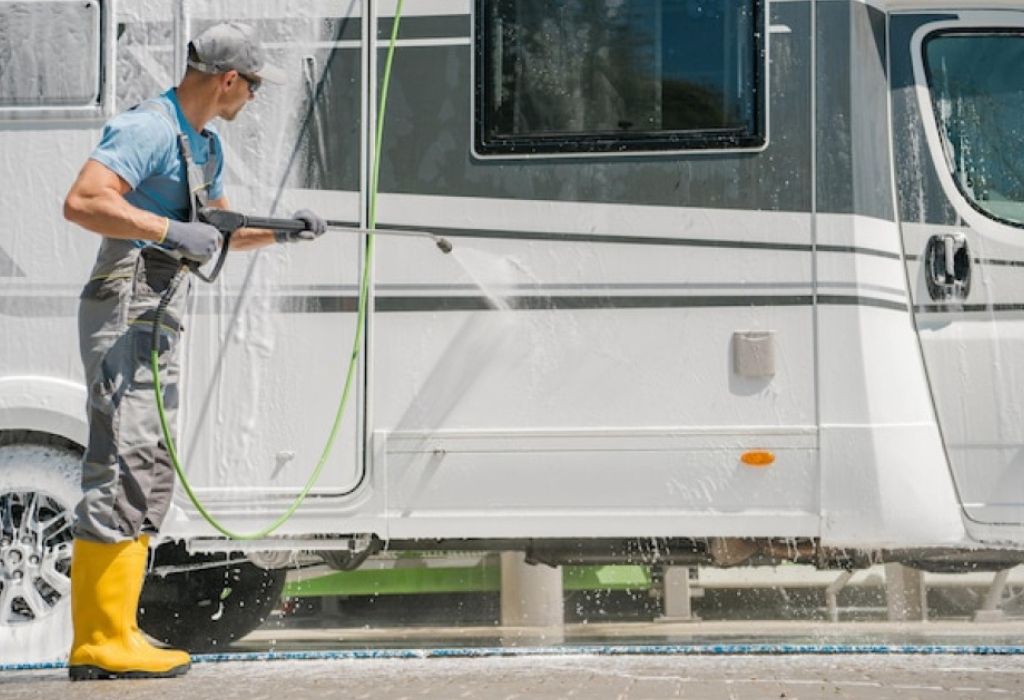
An RV water pump is the device responsible for moving water from the freshwater tank into your RV’s plumbing system. It provides the pressure needed for faucets, showers, and toilets to work just like they do at home.
Most RVs use a 12V diaphragm pump, which runs off the RV’s battery or converter. This design allows consistent pressure while being compact and energy efficient.
The pump works automatically through a pressure switch that activates when water flow is demanded. Once you open a tap, the pump detects the drop in pressure and begins pumping.
Without this small but powerful unit, you’d only have access to gravity-fed trickles of water. That’s why the pump is considered the heart of the RV water system.
What powers an RV water pump?
A 12V battery or RV converter powers it.
Is it always running?
No, a pressure switch turns it on only when water is needed.
Where is the pump located in most RVs?
Usually near the freshwater tank for efficient suction.
Do all RVs need a water pump?
Yes, unless they are permanently connected to city water.
Why is the RV water pump so important?
It delivers pressurized water for daily use, making RV living comfortable.
How Do RV Water Pumps Work Step by Step
An RV water pump draws water from the freshwater tank and pushes it into your plumbing system. It relies on a diaphragm mechanism that creates suction and pressure.
When you open a faucet, the pressure in the water lines drops. The pump’s pressure switch detects this and activates the motor.
The diaphragm inside the pump moves back and forth, creating a vacuum that pulls water in. It then pushes water out under pressure, sending it through pipes to faucets, showers, and the toilet.
Once the faucet is closed, pressure builds back up in the lines. The pump senses this and automatically shuts off.
This cycle ensures water is always available on demand without wasting energy. That’s why the system is both simple and reliable.
How does the pump know when to run?
The pressure switch detects a drop in pressure when you open a tap.
What PSI is normal for RV water pumps?
Most run between 40 and 60 PSI.
Does the pump work with hot water?
No, it only pushes cold water into the heater; the heater warms it.
Can pumps run dry?
They should not, because running dry can damage the diaphragm.
Is the pump noisy?
Some noise is normal, but excessive rattling may mean loose mounts or air in the lines.
Common Issues with RV Water Pumps
Like any mechanical part, water pumps can develop problems. Knowing the symptoms helps you troubleshoot quickly on the road.
One common issue is a pump that runs continuously. This usually signals a leak, a faulty pressure switch, or trapped air.
Low water pressure is another frustration. It can result from clogged filters, worn diaphragms, or restrictions in the water lines.
Sometimes, pumps sputter and deliver water with air bubbles. This often points to a leak on the suction side of the system or an empty tank.
Finally, pumps can simply wear out with age. The average RV water pump lasts 5–7 years under normal use.
Why won’t my pump stop running?
It likely has a pressure leak or a defective switch.
Why is my water pressure weak?
Check for clogged filters, kinks in hoses, or worn pump parts.
Why does my pump sputter?
There may be air in the system or the tank could be low.
Do water pumps wear out?
Yes, most last 5–7 years before needing replacement.
Can I still use city water if my pump is bad?
Yes, hooking up to city water bypasses the pump entirely.
Maintenance Tips for RV Water Pumps
Regular maintenance keeps your pump reliable and efficient. Cleaning the pump’s strainer is one of the most important tasks.
The strainer catches debris before it reaches the pump, preventing damage. Cleaning it every few months helps maintain water flow.
Sanitizing your freshwater tank at least once or twice a season is also critical. This prevents bacterial growth that can clog the pump and lines.
Electrical connections should be checked for corrosion. Tight, clean connections ensure the pump runs smoothly on 12V power.
Finally, always winterize your system before freezing weather. Running RV antifreeze through the pump protects it from cracking.
How often should I clean the strainer?
Every 2–3 months, or more if using questionable water sources.
Do pumps require lubrication?
No, diaphragm pumps are self-sealed and maintenance-free internally.
Can I run the pump dry?
No, it can overheat and damage the diaphragm.
How do I winterize the pump?
By running RV antifreeze through the system until pink fluid exits each faucet.
Should I sanitize the freshwater tank?
Yes, at least once or twice per year for safe drinking water.
Upgrading or Replacing an RV Water Pump
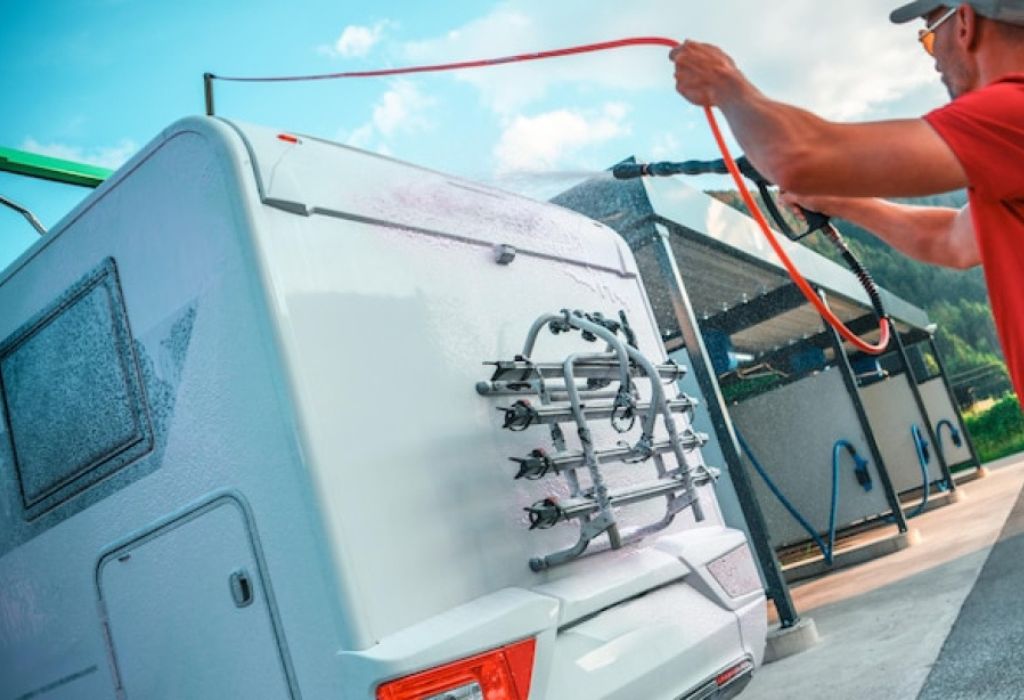
Eventually, every RV owner will face replacing or upgrading their pump. Recognizing the signs early can prevent breakdowns on the road.
If your pump is noisy, weak, or fails to shut off, it may be time to upgrade. Newer pumps are quieter, more efficient, and provide higher flow rates.
When choosing a replacement, consider the GPM (gallons per minute) rating. Most RVs do well with a pump rated between 3 and 5 GPM.
PSI rating also matters. Pumps designed for 40–60 PSI balance strong pressure with safe operation for RV plumbing.
Installation is usually a DIY project. With basic tools and plumbing fittings, most owners can replace their pump in under an hour.
How long do RV pumps last?
Typically 5–7 years with proper care.
What GPM rating is best for RVs?
Between 3 and 5 GPM works well for most setups.
Can I replace my pump myself?
Yes, it’s a manageable project with basic tools.
Are newer pumps worth upgrading?
Yes, they are quieter, more efficient, and often last longer.
Should I match my old pump’s specs?
Yes, always choose a pump with similar PSI and GPM ratings.
RV Pump Use Off-Grid vs. City Water
When boondocking or dry camping, the pump is essential. It draws water from your onboard tank to supply sinks, showers, and toilets.
When hooked up to city water, the pump is not needed. Instead, campground water pressure feeds directly into your RV plumbing.
However, city water can be too strong. That’s why a pressure regulator is essential to protect delicate RV plumbing.
Some RV owners wonder if they can use city water and the pump together. The answer is no; using both can damage the system.
For off-grid camping, rely on the pump and ensure your batteries are charged. For hookups, use city water with a regulator for safety.
Do I use my pump with city water?
No, city water pressure bypasses the pump.
What protects my RV plumbing from high pressure?
A pressure regulator reduces city water PSI to safe levels.
Can I use both city water and pump together?
No, this can cause damage or leaks.
What’s best for boondocking?
A reliable pump and a fully charged RV battery system.
Does city water provide better pressure?
Often yes, but it must be regulated to prevent line damage.
Conclusion
An RV water pump is a small device with a big role. It transforms stored water into a pressurized system that makes RV living feel like home.
By understanding how RV water pumps work, you can troubleshoot issues, perform simple maintenance, and know when it’s time for an upgrade.
A healthy pump means reliable showers, clean dishes, and peace of mind on the road. Before your next trip, check your system and give your pump the care it deserves.
I’m David R. Coleman, the founder, lead writer, and lifelong tool enthusiast behind GarageToolPro.com. With years of experience in automotive repair, woodworking, and home DIY projects, I created this platform to share practical tips, detailed tool reviews, and step-by-step guides that help mechanics, hobbyists, and homeowners get the job done right the first time.

